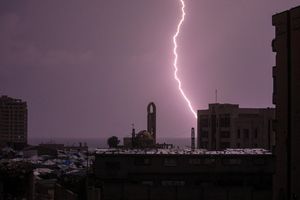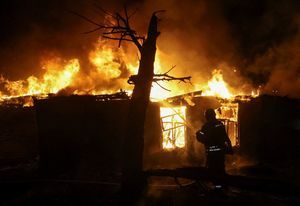Newly Unsealed Records Shed Light on Sewol Ferry Disaster, But Key Details Remain Hidden
koreaherald Views
 A total of 7,784 previously sealed presidential records from the Park Geun-hye administration have been made public, including 22 pieces of information related to the 2014 Sewol ferry disaster that claimed 304 lives.
A total of 7,784 previously sealed presidential records from the Park Geun-hye administration have been made public, including 22 pieces of information related to the 2014 Sewol ferry disaster that claimed 304 lives.
No new revelations on Sewol controversies
The newly released records include reports submitted to Park during the investigation of the maritime disaster, one of the worst in South Korea’s history. The government faced intense criticism for its handling of the tragedy, which primarily claimed the lives of high school students on a field trip. Subsequent investigations revealed inadequate rescue efforts and widespread corruption across both private and public sectors predating the accident.
Additional records include documents on follow-up measures to the special act concerning the Sewol investigation and parliamentary discussions surrounding its enactment.
However, most of the information sought by civic groups regarding the Sewol ferry disaster remains sealed, including reports submitted to the presidential office on the day of the accident. This information is central to the “seven-hour controversy,” which refers to the lack of records indicating Park’s whereabouts or actions between her first Sewol-related order at 10:15 a.m. and her visit to the Central Disaster and Safety Countermeasures Headquarters at 5:15 p.m. Park’s actions during the initial stages of the disaster remain a mystery, as does the reason for the hour-long delay in informing her after the first report to the Coast Guard at around 8:50 a.m.
Park’s actions during the initial stages of the disaster remain a mystery, as does the reason for the hour-long delay in informing her after the first report to the Coast Guard at around 8:50 a.m.
Other released records from the Park administration include results of a working-level meeting between South Korea and Japan on defense policies, security briefings provided to the United Nations commander, and reports related to legislative processes in the National Assembly, such as those concerning the Child Care Act.
The Act on the Management of Presidential Archives stipulates that presidential records that could pose a severe risk to national security or threaten economic stability if disclosed may remain inaccessible for up to 15 years, or up to 30 years for records concerning individuals’ private lives.
Will Sewol records be released?
It remains uncertain when records detailing Park’s actions during the crucial hours of the Sewol disaster will be released, or if these documents contain comprehensive information about her activities at that time.
Hwang Kyo-ahn, who became acting president following Park’s impeachment, designated all documents created by the presidential office on April 14, 2016, to be sealed in the Presidential Archives. Both the content and the list of these documents are classified.
In 2021, the special government-civic committee investigating the disaster reportedly considered requesting a search and seizure of the Presidential Archives for crucial information but ultimately abandoned the plan.
An administrative trial concerning the release of documents related to the seven-hour period was initiated in 2017 by lawyer Song Ki-ho, now an aide to President Lee Jae Myung. After the Seoul High Court ruled against Song in 2019, the Supreme Court overturned the decision in January and ordered a re-examination of the case.









Most Commented